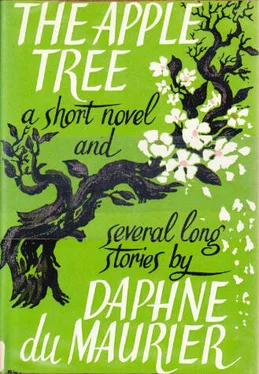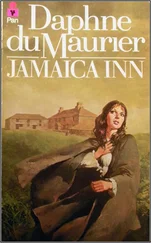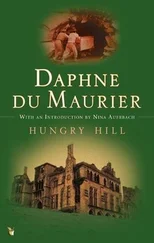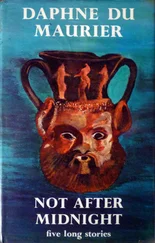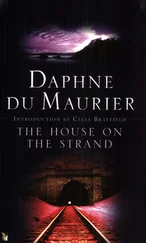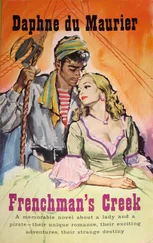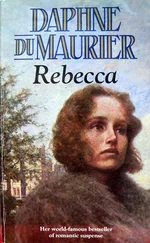Daphne du Maurier - The Apple Tree - a short novel & several long stories
Здесь есть возможность читать онлайн «Daphne du Maurier - The Apple Tree - a short novel & several long stories» весь текст электронной книги совершенно бесплатно (целиком полную версию без сокращений). В некоторых случаях можно слушать аудио, скачать через торрент в формате fb2 и присутствует краткое содержание. Жанр: Современная проза, Триллер, Социально-психологическая фантастика, на английском языке. Описание произведения, (предисловие) а так же отзывы посетителей доступны на портале библиотеки ЛибКат.
- Название:The Apple Tree: a short novel & several long stories
- Автор:
- Жанр:
- Год:неизвестен
- ISBN:нет данных
- Рейтинг книги:5 / 5. Голосов: 1
-
Избранное:Добавить в избранное
- Отзывы:
-
Ваша оценка:
- 100
- 1
- 2
- 3
- 4
- 5
The Apple Tree: a short novel & several long stories: краткое содержание, описание и аннотация
Предлагаем к чтению аннотацию, описание, краткое содержание или предисловие (зависит от того, что написал сам автор книги «The Apple Tree: a short novel & several long stories»). Если вы не нашли необходимую информацию о книге — напишите в комментариях, мы постараемся отыскать её.
The Apple Tree: a short novel & several long stories — читать онлайн бесплатно полную книгу (весь текст) целиком
Ниже представлен текст книги, разбитый по страницам. Система сохранения места последней прочитанной страницы, позволяет с удобством читать онлайн бесплатно книгу «The Apple Tree: a short novel & several long stories», без необходимости каждый раз заново искать на чём Вы остановились. Поставьте закладку, и сможете в любой момент перейти на страницу, на которой закончили чтение.
Интервал:
Закладка:
The Marquise turned back from the opening. She gathered her things together. She tried to pull the flattened bracken to its original height, and so smooth out the signs of habitation, but the hiding-place had been made so long that this was impossible. Perhaps it did not matter. Perhaps it would be taken for granted that people came out upon the cliff and took their ease.
Suddenly her knees began to tremble and she sat down. She waited a few moments, then glanced at her watch. She knew that it might be important to remember the time. A few minutes after half-past three. If she was asked, she could say, "Yes, I was out on the headland at about half-past three, but I heard nothing." That would be the truth. She would not be lying. It would be the truth.
She remembered with relief that today she had brought her mirror in her bag. She glanced at it, fearfully. Her face was chalk white, blotched and strange. She powdered, carefully, gently; it seemed to make no difference. Miss Clay would notice something was wrong. She dabbed dry rouge on to her cheeks, but this stood out, like the painted spots on a clown's face.
"There is only one thing to do," she thought, "and that is to go straight to the bathing-cabin on the beach, and undress, and put on my swimming-suit, and bathe. Then if I return to the hotel with my hair wet, and my face wet too, it will seem natural, and I shall have been swimming, and that also will be true."
She began to walk back along the cliff, but her legs were weak, as though she had been lying ill in bed for many days, and when she came to the beach at last she was trembling so much she thought she would fall. More than anything she longed to lie down on her bed, in the hotel bedroom, and close the shutters, even the windows, and hide there by herself in the darkness. Yet she must force herself to play the part she had decided.
She went to the bathing-cabin and undressed. Already there were several people lying on the sands, reading or sleeping, the hour of siesta drawing to its close. She walked down to the water's edge, kicked off her rope-soled shoes, drew on her cap, and as she swam to and fro in the still, tepid water, and dipped her face, she wondered how many of the people on the beach noticed her, watched her, and afterwards might say, "But don't you remember, we saw a woman come down from the headland in the middle of the afternoon?"
She began to feel very cold, but she continued swimming, backwards and forwards, with stiff, mechanical strokes, until suddenly, seeing a little boy who was playing with a dog point out to sea, and the dog run in barking towards some dark object that might have been a piece of timber, nausea and terror combined to turn her faint, and she stumbled from the sea back to the bathing-cabin and lay on the wooden floor, her face in her hands. It might be, she thought, that had she gone on swimming she would have touched him with her feet, as his body came floating in towards her on the water.
In five days' time the Marquis was due to arrive by car and pick up his wife, the governess and the children, and drive them home. The marquise put a call through to him at the château, and asked if it would be possible for him to come sooner. Yes, the weather was still good, she said, but somehow she had become tired of the place. It was now getting too full of people, it was noisy, and the food had gone off. In fact she had turned against it. She longed to be back at home, she told her husband, amongst her own things, and the gardens would be looking lovely.
The Marquis regretted very much that she was bored, but surely she could stick it out for just the three days, he said. He had made all his arrangements, and he could not come sooner. He had to pass through Paris anyway for an important business meeting. He would promise to reach her by the morning of the Thursday, and then they could leave immediately after lunch.
"I had hoped," he said, "that you would want to stay on for the weekend, so that I too could get some bathing. The rooms are held surely until the Monday?"
But no, she had told the manager, she said, that they would not require the rooms after Thursday, and he had already let them to someone else. The place was crowded. The charm of it had gone, she assured him. Edouard would not care for it at all, and at the weekend it became quite insupportable. So would he make every effort to arrive in good time on the Thursday, and then they could leave after an early lunch?
The Marquise put down the receiver and went out to the balcony to the chaise longue. She took up a book and pretended to read, but in reality she was listening, waiting for the sound of footsteps, voices, at the entrance to the hotel, and presently for her telephone to ring, and it would be the manager asking her, with many apologies, if she would mind descending to his office. The fact was, the matter was delicate… but the police were with him. They had some idea that she could help them. The telephone did not ring. There were no voices. No footsteps. Life continued as before. The long hours dragged through the interminable day. Lunch on the terrace, the waiters bustling, obsequious, the tables filled with the usual faces or with new visitors to take the place of old, the children chattering, Miss Clay reminding them of their manners. And all the while the Marquise listened, waited…
She forced herself to eat, but the food she put in her mouth tasted of sawdust. Lunch over, she mounted to her room, and while the children rested she lay on the chaise longue on the balcony. They descended to the terrace again for tea, but when the children went to the beach for their second bathe of the day she did not go with them. She had a little chill, she told Miss Clay; she did not fancy the water. So she went on sitting there, on her balcony.
When she closed her eyes at night and tried to sleep, she felt his stooping shoulders against her hands once more, and the sensation that it had given her when she pushed them hard. The ease with which he fell and vanished, one moment there, and the next, nothing. No stumble, no cry.
In the daytime she used to strain her eyes towards the headland, in search of figures walking there, amongst the bracken — would they be called "a cordon of police?" But the headland shimmered under the pitiless sun, and no one walked there in the bracken.
Twice Miss Clay suggested going down into the town in the mornings to make purchases, and each time the Marquise made an excuse.
"It's always so crowded," she said, "and so hot. I don't think it's good for the children. The gardens are more pleasant, the lawn at the back of the hotel is shady and quiet."
She herself did not leave the hotel. The thought of the beach brought back the pain in her belly, and the nausea. Nor did she walk.
"I shall be quite all right," she told Miss Clay, "when I have thrown off this tiresome chill."
She lay there on the balcony, turning over the pages of the magazines she had read a dozen times.
On the morning of the third day, just before déjeuner, the children came running on to the balcony, waving little windmill flags.
"Look, maman," said Hélene, "mine is red, and Célèste's is blue. We are going to put them on our sand-castles after tea."
"Where did you get them?" asked the Marquise.
"In the market-place," said the child. "Miss Clay took us to the town this morning instead of playing in the garden. She wanted to pick up her snap-shots that were to be ready today."
A feeling of shock went through the Marquise. She sat very still.
"Run along," she said, "and get ready for déjeuner."
She could hear the children chattering to Miss Clay in the bathroom. In a moment or two Miss Clay came in. She closed the door behind her. The Marquise forced herself to look up at the governess. Miss Clay's long, rather stupid face was grave and concerned.
Читать дальшеИнтервал:
Закладка:
Похожие книги на «The Apple Tree: a short novel & several long stories»
Представляем Вашему вниманию похожие книги на «The Apple Tree: a short novel & several long stories» списком для выбора. Мы отобрали схожую по названию и смыслу литературу в надежде предоставить читателям больше вариантов отыскать новые, интересные, ещё непрочитанные произведения.
Обсуждение, отзывы о книге «The Apple Tree: a short novel & several long stories» и просто собственные мнения читателей. Оставьте ваши комментарии, напишите, что Вы думаете о произведении, его смысле или главных героях. Укажите что конкретно понравилось, а что нет, и почему Вы так считаете.
